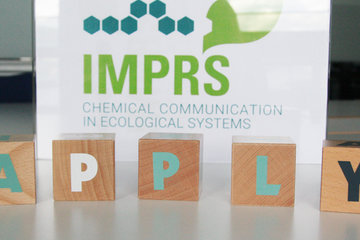Sarah O'Connor is a new member of the Leopoldina
The natural product chemist and Director at the Max Planck Institute for Chemical Ecology in Jena has been elected a member of the German National Academy of Sciences
Jena Max Planck Director Sarah O'Connor has been elected as a new member of the Leopoldina's Section for Organismic and Evolutionary Biology. Election to the oldest scientific society in the German-speaking world is one of the highest scientific honors in Germany. The US-American is a leading expert in the field of natural product research. The chemist focuses on the question of how plants produce important chemical substances and elucidates the biochemical processes and the associated enzymatic steps in the biosynthesis of medically interesting plant substances.

Sarah O'Connor, who was awarded the Gottfried Wilhelm Leibniz Prize in 2023, has been a director at the Max Planck Institute for Chemical Ecology in Jena since 2019. As head of the Department of Natural Product Biosynthesis, she and her team are dedicated to studying the biosynthesis of diverse metabolites in plants and animals. These compounds, which are often known for their pharmaceutical effects, arouse particular interest in medicine. Her focus is on alkaloids and iridoids - complex molecules with fascinating biological properties.
Her work focuses on how plants and animals produce these chemical compounds and how the metabolic pathways involved have evolved over time. To solve these puzzles, Sarah O'Connor and her team are developing innovative methods to decipher the biosynthetic pathways and are also genetically engineering novel metabolic pathways. The goal is to understand the fundamental biological and chemical mechanisms behind the biosynthesis of these valuable natural substances - research that will open up new perspectives for medicine and biotechnology in the long term.
Sarah O'Connor is delighted to have been elected to the Leopoldina. ”It is an enormous honor to have been elected to Germany’s National Academy. I very much hope that I can contribute to the amazing scientific landscape in Germany”, she says. The Leopoldina was founded in 1652, making it one of the oldest scientific academies in the world. Its mission is to promote science for the benefit of mankind and nature. As the National Academy, the Leopoldina issues independent and scientifically sound statements on socially relevant topics and advises political decision-makers and the public.
Membership of the Leopoldina is considered one of the highest honors for scientists in Germany. Outstanding experts are nominated by members of the Academy after a multi-stage selection process. The members contribute their expertise to key topics - such as genetic engineering, climate research, the energy transition and biodiversity - and thus make a significant contribution to tackling global challenges. The newly elected members of Class II - Life Sciences were announced this week. The presentation of the membership certificates by the President of the Leopoldina, Prof. Dr. Bettina Rockenbach, will take place on 9 April 2025.
https://www.leopoldina.org/presse-1/pressemitteilungen/pressemitteilung/press/3123/












